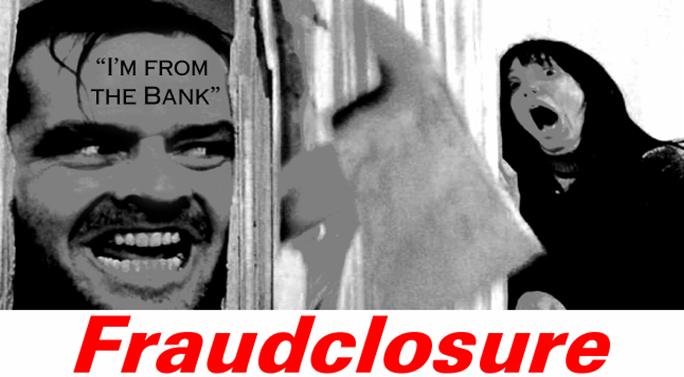J. JOHN MARSHALL, ESTATE OF MARJORIE MARSHALL, and KIMBERLY WILEY Plaintiffs,
v.
JP MORGAN CHASE BANK, AMERIPRISE BANK, FIDELITY NATIONAL FIELD SERVICES, INC., JAKK MORTGAGE COMPANY, LPS, FIELD SERVICES, ROBERT HASBERGER, CITY OF ELKHART, CHIEF DALE PFLIBSEN, CPL. MICHAEL WINDMILLER, PTLMN. BRANDON ROUNDTREE, SGT. TRAVIS SNIDER, PTLMN. MICHAEL JANIS, Defendants.
OPINION AND ORDER
JAMES T. MOODY, District Judge.
Defendant JP Morgan Chase Bank (“Chase”) (DE #49) and defendants Jakk Mortgage Company (“Jakk”) and Robert Hashberger (DE #46) have filed separate motions to dismiss plaintiffs’ amended complaint under FED. R. CIV. P. 12(b)(6).[1] For the following reasons, those motions are granted in part, and denied in part.
I. Facts[2]
On August 20, 2009, plaintiffs J. John Marshall (“Marshall”) and Kimberly Wiley (“Wiley”) (collectively “plaintiffs”) were working at Marshall’s residence located at 1625 Brookwood Drive, Elkhart, IN (“the property”). The property was in foreclosure, but the foreclosure had not been completed. While plaintiffs were working at the property, an individual who did not identify himself entered the house in an aggressive manner, questioned plaintiffs about their right to be in the house, and demanded plaintiffs leave the house. This individual was later identified as defendant Robert Hashberger (“Hashberger”). Hashberger told plaintiffs that he owned and controlled the property, and also told plaintiffs that they should not be at the property.
At that point, Marshall identified himself as one of the owners of the property, and peacefully removed Hashberger. After Hashberger was gone, plaintiffs went back to work. Shortly thereafter, four City of Elkhart police officers arrived at the property with their guns drawn. Plaintiffs believe the officers arrived at the property after receiving a call from Hashberger reporting a burglary. The officers pointed their guns at Wiley, handcuffed her, and dragged her outside. Once outside, the officers questioned Wiley about Marshall.
The officers then entered the room where Marshall was working, pointed their guns at him, and told him to get down on the floor. Marshall informed the officers that he could not get on the floor because of a disability. The officers grabbed Marshall and handcuffed him instead. After Marshall was handcuffed, the officers dragged him outside for questioning.
At some point, it became apparent to plaintiffs that the officers presence at the property was due to an alleged breaking and entering committed by plaintiffs. Plaintiffs therefore told the officers that Marshall was the owner of the property. Even with this information, however, the officers made plaintiffs stand outside in the sun for almost an hour. The officers eventually told plaintiffs that they were being taken to jail, and read plaintiffs their Miranda rights. Marshall asked the officers if he could contact his attorney, but the officers ignored his request. Marshall eventually began to lose consciousness because he was forced to stand in the sun for such a lengthy period of time. Plaintiffs were released from police custody without any charges being filed.
On August 19, 2011, plaintiffs initiated the current action against several defendants, including Chase, Jakk, and Hashberger. Chase holds the first mortgage on the property, and was in the process of foreclosing on that mortgage at the time of the alleged incident. Jakk and Hashberger manage properties for Chase. In their amended complaint, plaintiffs bring a federal claim under 42 U.S.C. § 1983 and state-law claims of negligence, wrongful eviction, trespass, property damage, and theft against Chase. Plaintiffs contend that Chase is vicariously liable for the actions of its agents, including Jakk and Hashberger. Plaintiffs bring a federal claim under 42 U.S.C. § 1983 and statelaw claims of negligence and false imprisonment against Jakk and Hashberger. Defendants Chase, Hashberger, and Jakk have now moved to dismiss plaintiffs’ claims against them.
More here…
~


Has become common practice for the bank to assign ‘clean out’ to their independent management companies who send in teams of day workers who strip the houses, vandalize and destroy the locks and security doors. This occurred on a property I own [yes own] remains in my name, a duplex occupied on one side was broken into by these bank designated and contracted thieves. A tenant, who still had an in force lease on the broken into side had left some of his items packed and ready for pick up after work. These bank [Bank of America] authorized thieves helped themselves to the tenant’s belongings. They broke the security door to gain entry even though the house was technically occupied and not bank owned. It was listed with an agent with a pending short sale. I posted the property immediately and filed a complaint with the bank and suggested the tenant file a claim for his personal belongings.
This is illegal, unacceptable and should not be tolerated. These actions should be reported and a complaint filed with the bank so they can change to companies that operate legally and are bonded against theft. Report these incidents and make claims for damages. It also protects the homeowner from being charged with vandalizing their own house as retaliatory actions against a foreclosing bank! Side note: This property was surrendered and B of A refused to foreclose or short sell for 2 years leaving upkeep to me with city charge mowing if I failed to keep the property up. They designated regular foreclosure sales, which they pulled at the last minute so the property had to stay vacant. These actions are criminal, unethical and in bad faith but we are helpless in our non-judicial state. Even when sued, the Courts side with the banks and permit no accommodation for bad documentation, title or modification failure.